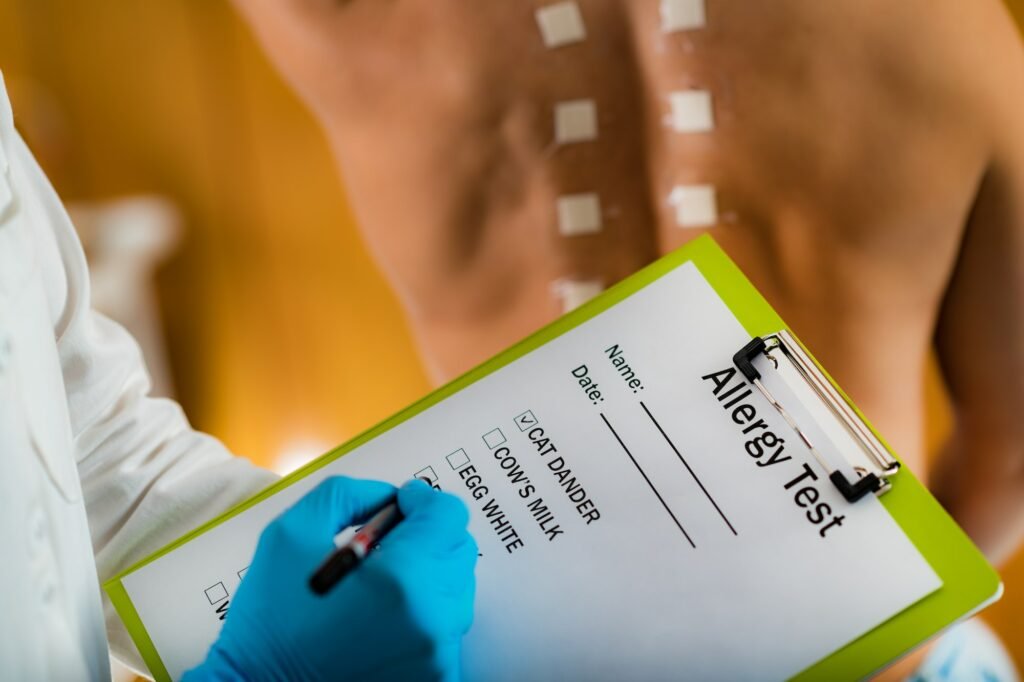Caffeine, a powerful substance enjoyed by many of us to jumpstart our day, can have adverse effects on those of us with caffeine sensitivity or allergies.
Now, while rare, being allergic to caffeine is possible, resulting in symptoms such as mouth itching, swollen lips, and hives.
In severe cases, a life-threatening allergic reaction known as anaphylaxis can occur.
Excessive caffeine consumption can also lead to restlessness, increased heart rate, and high blood pressure. So, to avoid health risks, it is recommended to limit caffeine intake to approximately 400 mg per day.
Allergy testing can diagnose caffeine allergies, and the primary treatment is to avoid consuming caffeine altogether. In any case, careful reading of the product label is essential, as caffeine can be found in unexpected places such as various food and skincare products.
Alleviating symptoms may involve increasing physical activity, ensuring adequate sleep, and using B vitamins and antihistamines. If allergy symptoms arise, consulting a healthcare professional for proper medication and guidance is crucial.
This article will explore the causes, symptoms, and frequently asked questions related to being allergic to caffeine.
What is it?

A caffeine allergy is a rare condition in which the body perceives caffeine as harmful and produces an immune response, resulting in allergic symptoms such as itching of the mouth, swollen lips, and hives.
The exact cause of caffeine allergies is not fully understood, but it is believed to be an immune system response in which the body produces antibodies to attack caffeine. This immune response can occur with even small amounts of caffeine consumption.
To diagnose a caffeine allergy, a doctor may perform allergy testing, which can involve skin prick tests or blood tests to measure specific antibodies.
It is important to note that a caffeine allergy is different from a caffeine intolerance or sensitivity, which can cause similar symptoms but do not involve the immune system.
If you suspect you have a caffeine allergy, it is important to consult a doctor for proper diagnosis and guidance.
Symptoms and Reactions
The effects of an excessive intake of caffeine can be quite discomforting, leaving individuals restless, jittery, and with an increased heart rate and high blood pressure.
It is important to note that these symptoms are not indicative of a caffeine allergy, but rather an overdose or sensitivity to caffeine.
Common misconceptions surrounding caffeine allergies may lead individuals to believe that these symptoms are signs of an allergic reaction. However, managing caffeine allergies in daily life requires a different approach.
As stated earlier, it is crucial to consult with a healthcare professional for proper diagnosis and treatment. Implementing lifestyle changes such as increasing physical activity and getting enough sleep can also help alleviate symptoms.
Treatment Options
Treatment options for individuals with a sensitivity or intolerance to caffeine involve avoiding its consumption and seeking guidance from a healthcare professional for accurate diagnosis and appropriate management strategies. It is important to note that a caffeine allergy is rare, but if symptoms occur, it is crucial to consult a doctor for proper medication and recommendations. In addition to completely avoiding caffeine, there are alternative therapies and strategies that can help manage symptoms. These include increasing physical activity, getting enough sleep, and incorporating B vitamins and antihistamines into the diet. It is also important to carefully read labels on food and skincare products, as caffeine can be found in various forms. Cutting back on caffeine consumption and being mindful of the recommended daily limit of 400 mg can also alleviate symptoms.
FAQs Relating to Caffeine Allergies
1. What are the symptoms of a caffeine allergy? Caffeine allergy symptoms can vary but commonly include hives, itching, swelling, rash, difficulty breathing, rapid heartbeat, and gastrointestinal disturbances like nausea, vomiting, or diarrhea.
2. How common are caffeine allergies? Caffeine allergies are relatively rare compared to other food allergies. While some people may experience adverse reactions to caffeine, true allergies to caffeine are uncommon.
3. Can caffeine allergies develop over time? Yes, it is possible for caffeine allergies to develop over time. While a person may have consumed caffeine without any issues in the past, they can develop an allergic response to it at a later stage. It’s important to monitor your body’s reaction to caffeine and seek medical advice if you suspect an allergy.
4. Are there any cross-reactions between caffeine and other substances? Caffeine is chemically related to other substances like theophylline and theobromine, which are found in tea and chocolate, respectively. Some individuals with a caffeine allergy may also experience cross-reactivity or cross-allergenicity with these substances. Allergies to these related compounds, however, are distinct from a caffeine allergy.
5. How can I manage a caffeine allergy? The most effective way to manage a caffeine allergy is to avoid consuming any products that contain caffeine. Read labels carefully, as caffeine can be found in various foods, beverages, medications, and even certain skincare products. If you suspect a caffeine allergy, consult with a healthcare professional for diagnosis and guidance on managing your specific condition.













